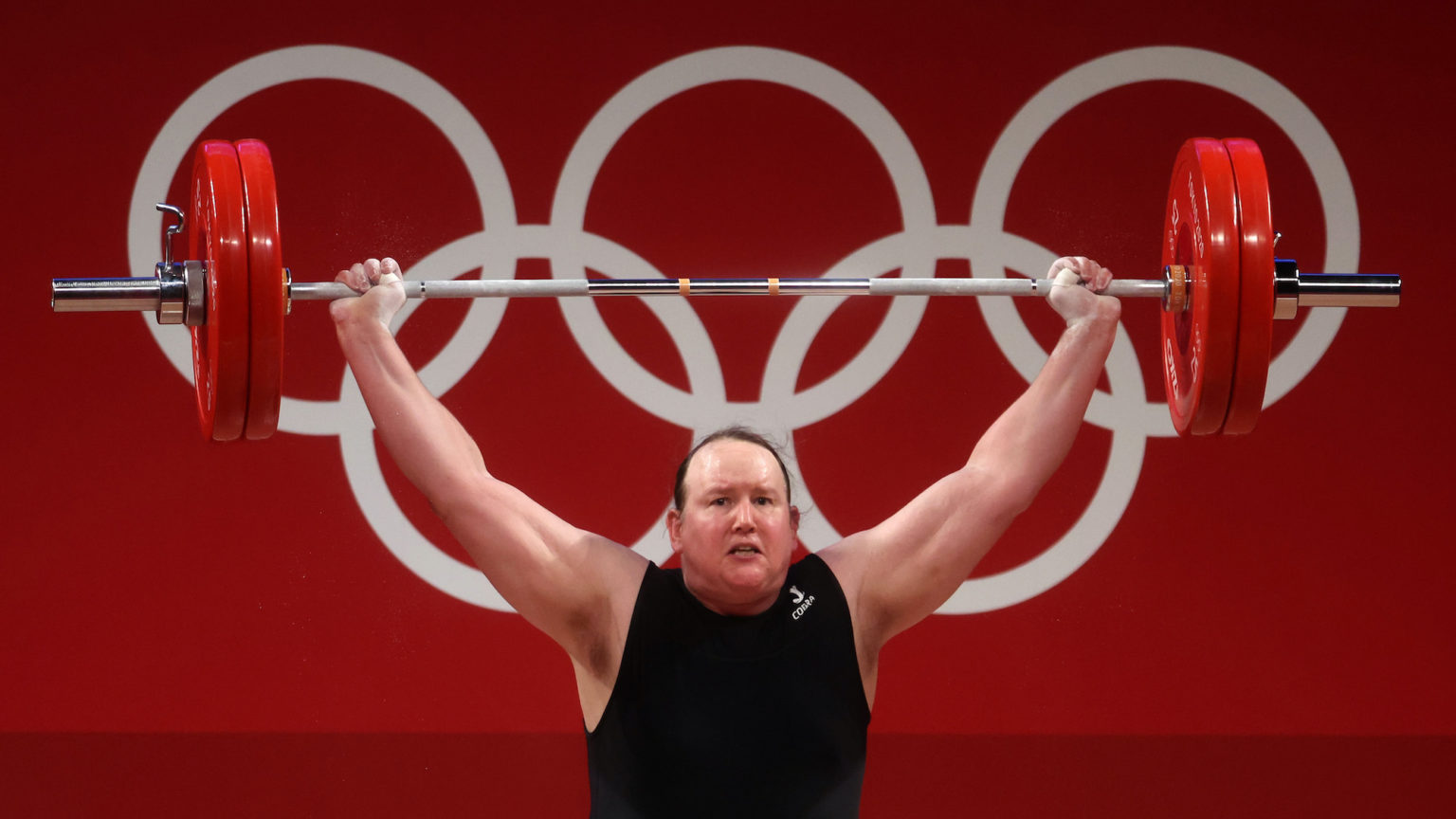The Olympic ban on cheating men is long overdue
The IOC owes an apology to the women who had their dreams shattered and safety compromised to appease trans activists.

Want unlimited, ad-free access? Become a spiked supporter.
Finally, common sense has prevailed at the International Olympic Committee (IOC). If rumours are to be believed, a blanket ban on transgender-identifying men competing in women’s Olympic events is set to be introduced. At last!
This is great news for female athletes who will no longer have to endure the indignity and inherent unfairness of being made to compete against males. And it will no doubt be a huge relief for women who engage in contact sports, such as boxing, and who were put in danger by being made to face bulkier, stronger rivals. But why has it taken the IOC so long to see sense?
Feminists have long known that defending women’s rights is a marathon, not a sprint. But when it comes to single-sex sports, this marathon has been undertaken at snail’s pace. Rather than simply saying ‘no’ to cheating men, the IOC has been around the houses. Since the last Olympics, it has elected a new president, established a ‘working group’, launched a review and commissioned a presentation. Even after all of this, we are told that ‘no decisions have been taken yet’.
The cause for celebration this week is solely down to sources having revealed ‘that a ban is likely to be introduced in 2026’, but probably not before February’s Winter Olympics in Italy. In fact, the ban may not take full effect until the Los Angeles Games in 2028.
Sadly, this will be far too late for New Zealand’s women weight lifters. They missed out on the life-changing opportunity to compete in the 2020 Olympic Games in Tokyo, when their spot was taken by transgender athlete, Laurel Hubbard. Hubbard competed in men’s events before declaring himself to be transgender in 2013. He took medication to reduce his testosterone levels and – hey presto! – gained a place in the female category. Hubbard did not win a medal at the games, but, unlike the women who did take the top spots, he garnered global media plaudits.
Worryingly, it is not at all clear whether the IOC’s newly proposed ban will impact athletes who are not transgender, but have differences in sex development (DSD). That is, people who are assumed to be girls at birth, but who have male chromosomes and male levels of testosterone.
Two DSD boxers won gold medals in the Paris 2024 Olympics: Imane Khelif from Algeria and Taiwan’s Lin Yu-Ting. Despite the pair having been disqualified from the previous year’s World Championships for failing sex tests, in 2024, the whole world got to see these male-bodied fighters literally beating women into submission. ‘I’ve never been hit so hard in my life,’ said Italy’s Angela Carini after she was forced to abandon her bout against Khelif in Paris in the first round. Yet, like Hubbard at the 2020 games, Khelif was feted by public figures around the world.
Despite the uncertainty around DSD athletes, it is surely the ugly spectacle of men punching women that prompted the IOC to review its sex categories. News of an imminent ban on trans women in female sporting events comes after the intervention of the IOC’s medical and scientific director, Dr Jane Thornton. Her presentation to the IOC board revealed findings of a scientific review indicating that athletes born male retain physiological advantages, even after reducing testosterone levels. That such a lengthy process was needed to demonstrate what everyone already knows – that, after going through puberty, men are, on average, taller, broader and stronger than women – is bizarre. But so too is the fact that we need to wait until next year for a ban on men in women’s sports to be formally announced.
A ban on transgender-identifying men competing in women’s Olympic events is to be welcomed. But it needs to be accompanied by a ban on male athletes competing in female categories in all sporting competitions, at all levels and ages. If girls are pitched against boys in the swimming pool or on the athletics track, then the danger is that they grow disillusioned and give up on competitive sports long before they make it to the Olympics. Too many young women, like American swimmer Riley Gaines, have already had to put up with their sporting careers being prematurely ended because of men who feel entitled to a place on the women’s team.
So well done to members of the IOC for finally seeing sense on women’s sport. But female athletes should not be expected to wait for a few more years for their sex-based category to be protected. A ban on cheating men muscling their way into any women’s and girls’ sporting events needs to be enacted immediately.
And, while they’re at it, IOC members could issue an apology to an entire cohort of women who missed out on sporting success and had their safety put in jeopardy. All because the IOC was captured by gender ideology, and too cowardly to assert what the whole world knows to be true.
Joanna Williams is a spiked columnist and author of How Woke Won. Follow her on Substack: cieo.substack.com.
You’ve hit your monthly free article limit.
Support spiked and get unlimited access.
Support spiked and get unlimited access
spiked is funded by readers like you. Only 0.1% of regular readers currently support us. If just 1% did, we could grow our team and step up the fight for free speech and democracy.
Become a spiked supporter and enjoy unlimited, ad-free access, bonus content and exclusive events – while helping to keep independent journalism alive.
Monthly support makes the biggest difference. Thank you.











Comments
Want to join the conversation?
Only spiked supporters and patrons, who donate regularly to us, can comment on our articles.